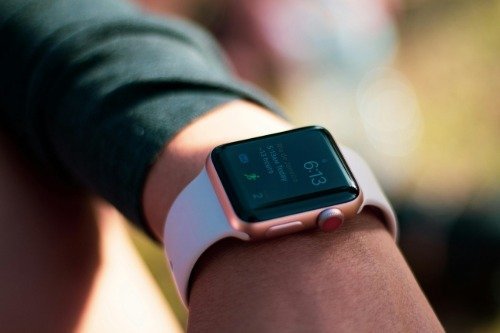Smartwatches have become an essential accessory for many in the modern age, bridging the gap between fashion and functionality. As the tech world advances, so do the features that these wearable devices offer. From fitness tracking and health monitoring to notifications and even mobile payments, smartwatches have steadily evolved into multi-functional gadgets. However, amid all these impressive upgrades, there’s one feature that truly stands out as essential: health monitoring. In a world where our health is often overlooked in the pursuit of productivity, smartwatches now offer a way to keep it at the forefront.
The Rise of Smartwatch Features

It wasn’t that long ago when a smartwatch was simply an extension of your phone, allowing you to view notifications, check the time, and send quick messages without needing to pull out your phone. Fast forward to today, and smartwatches have turned into sophisticated health and fitness tools. The most popular brands now include features like heart rate monitoring, sleep tracking, stress detection, and even electrocardiogram (ECG) readings. These devices are no longer just “smart” in the sense that they connect to your phone, but they’ve grown into powerful wellness tools that help you track your physical and mental health in real time.
With advancements in sensors, screens, and battery life, these gadgets offer more than just basic information. You can now monitor how your body reacts to different activities, sleep patterns, and even hydration levels, all from your wrist. Additionally, many brands have started to integrate GPS, fall detection, and even blood oxygen level readings, making smartwatches a go-to choice for fitness enthusiasts, adventurers, and even those who are simply looking to live healthier, more informed lives.
But despite the impressive breadth of features, it’s easy to get lost in the hype of new gadgets and forget the true value of the smartwatch: its ability to actively monitor and manage your health.
Why Health Monitoring Should Be the Core Focus

Among the growing number of features being added to smartwatches, health monitoring is the one that stands out in its potential to truly impact our well-being. Unlike other functions like messaging or social media notifications, which can often contribute to digital fatigue, health features encourage users to focus on self-care and wellness. In fact, health data provided by smartwatches can serve as a wake-up call for many users who might not be paying close attention to their lifestyle choices.
For example, heart rate monitoring is a key feature that can alert you when your heart rate is unusually high or low, potentially pointing to issues like stress, over-exertion, or even an undiagnosed condition. Sleep tracking is another game-changer, giving you insights into your sleep cycles, and helping you understand the quality of rest you’re getting. This information can help users adjust their daily habits to ensure they’re getting enough sleep, which is crucial for mental and physical health.
For fitness enthusiasts, smartwatches also provide detailed activity tracking. Whether you’re running, swimming, or simply walking, you can track your progress, set goals, and see your performance data in real time. Over time, this can help you understand your body’s limits and make more informed decisions about your training or recovery periods.
In a society where stress levels are often high, many smartwatches now feature stress detection and guided breathing exercises to help you manage your mental well-being. By tracking stress levels based on heart rate variability, smartwatches help you identify moments of high tension in your day, encouraging you to take breaks or engage in relaxation techniques before stress becomes overwhelming.
While other features, like the ability to stream music or check your email, are certainly appealing, they don’t contribute directly to long-term health and wellness. That’s why health monitoring should be the centerpiece of any smartwatch, especially as we become more attuned to the need for preventative care and proactive health management.
The Future of Smartwatch Health Features

Looking ahead, the future of smartwatches is brimming with potential. As technology advances, so too will the capabilities of these devices. While current health monitoring features like heart rate and sleep tracking are already making a difference, the next big thing is likely to be more advanced health diagnostics, including glucose monitoring, mental health tracking, and potentially even early detection of conditions like hypertension or arrhythmias.
Researchers are already exploring non-invasive ways to measure blood glucose levels, which could be a game-changer for people with diabetes. Currently, glucose monitoring requires a blood sample, but wearable devices could soon provide real-time data on blood sugar levels, offering greater convenience and improving daily management.
Mental health is also an area where smartwatches could become increasingly important. Beyond just tracking stress levels, future smartwatches may be able to detect early signs of anxiety, depression, or other mental health conditions by analyzing changes in behavior, heart rate patterns, and even speech. Devices could provide immediate feedback or suggestions for mental health care, potentially saving lives by encouraging timely intervention.
As the smartwatch continues to evolve, so too will its integration with other health systems and data-sharing platforms. For example, syncing your smartwatch with telemedicine services could allow doctors to remotely monitor your health data, offering more personalized care. This integration could also lead to more customized workout routines, nutrition plans, and wellness advice, all based on real-time data.
Ultimately, the future of smartwatches lies not in their ability to entertain or even make our lives easier in a digital sense but in their capacity to help us live longer, healthier lives. By focusing on health-related features, these devices can empower us to take better control of our well-being, giving us the tools to prevent potential issues before they arise and encouraging healthier habits every day.
While it’s easy to get excited about the newest smartwatch features—whether it’s the ability to stream music, make payments, or track your workout data—what truly matters in the long run is how the device can impact your health. Health monitoring features are the ones that stand to make a real difference in our lives, providing us with insights into our physical and mental well-being that can lead to more informed choices and better overall health. As smartwatches continue to evolve, it’s clear that health will remain at the heart of these devices, and that’s the feature that should matter most to us.


